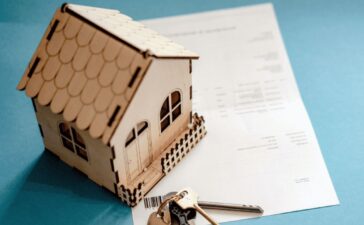As a general rule, utility bills should not consume more than 10% of your gross income. However, your bills may fluctuate depending on the season, the number of people in your home in a given month, and overall usage.
During the pandemic, many people had higher utility bills because of spending more time indoors. If you’re concerned about escalating bills, here are a few issues that may be causing the problem.
You Have an Old or Inefficient Appliance
If you’ve had your appliances for a while, they may be due for an upgrade. Replacing an old appliance with a new, more energy-efficient model can save you money in the long run. The general rule is, if an appliance is more than 10 years old, replace it with a new one.
Check out https://jenningsheating.com/copley/ for advice and help to install a more energy efficient unit.
Older appliances also break down more often, adding costs to your overall utility expenditures. Appliances that need repairs also consume more power because they have to work harder and longer to produce the same results. To avoid this, schedule regular inspections, address issues as they arise, and carry out regular maintenance.
Address Leaks and Other Plumbing Issues
Water leaks in homes account for 10,000 gallons of wasted water annually. A dripping faucet might seem insignificant, but it will lead to higher water bills over time. Leaking valves, worn-out washers, and clogged drains are common causes of increased water bills.
Improper Appliance Usage
If you’re not using your appliances correctly, you could be wasting energy and money as well. For example, did you know that leaving a refrigerator door ajar even for a short time wastes energy?
It might seem like an insignificant amount, but it can add up over time. Other ways to save include doing full loads of laundry and dishes.
Opt for Smart Installations
Installations such as AI-powered thermostats, lights, locks, and faucets can help save water and energy consumption. Change your bulbs to LED, set your AC to a specific temperature, and lower the thermostat when you’re away.
Motion detector lights save you money on energy bills. They only go off when a schedule or a motion is detected. It means that you won’t have to leave the lights on all day or night when you’re not at home.
You Have Insufficient Insulation
Insufficient insulation leads to higher energy consumption as well, which leads to higher utility bills. Drafts and uneven temperatures also make your home less comfortable to live in.
Without adequate insulation, your furnace has to work harder to maintain a comfortable temperature during the winter months. In the summer, the air conditioner struggles to keep up. Liaising with an expert is the best way to ensure your home is adequately insulated. Areas to address are:
- Leaky windows and doors
- Walls and basement insulation
- Insulation for your attic, ceiling, and crawlspaces
Plugged Devices Not in Use
Devices may still use electricity even when they’re turned off. This ”phantom” electricity consumption can account for 5% to 10% of your home’s total energy use. Devices that are always plugged in, such as cable boxes, DVRs, and gaming consoles are the biggest offenders.
Check your appliances as well, such as microwaves and toasters. Only plug in the appliances when you intend to use them, then unplug immediately after use.
Letting your computer run even when you are not using it also uses a substantial amount of energy. Turn off your computer and monitor when you’re not using them. If you have to leave your computer on for long periods, use the power management settings to put it in hibernation or sleep mode.
Rising Utility Rates
Your utility rates continue to rise because the cost of producing and delivering energy has increased. Some of the main factors include:
- The cost of natural gas and coal used to generate electricity
- Government policies that subsidize renewable energy sources, such as solar and wind power
- The rising cost of labor, materials, and land
To keep your utility rates low, conserve energy. Doing so reduces the demand, which lowers the cost of producing and delivering energy in the big picture.
Take Small Steps To Significantly Reduce Your Utility Bills
Small steps such as fixing broken appliances, repairing leaks and investing in quality insulation can make a big difference. You’ll also keep your household comfortable while saving money on utility costs.





